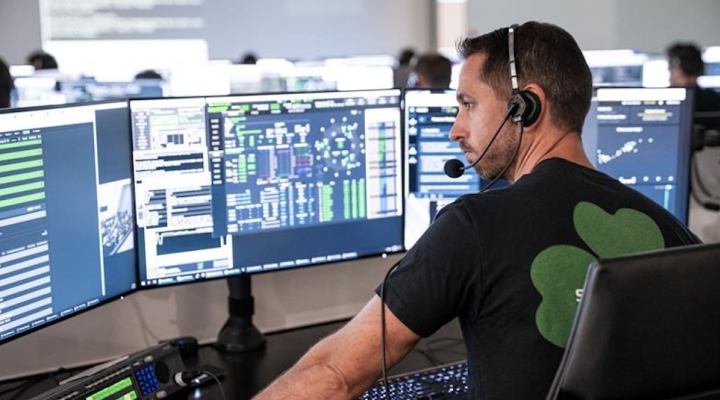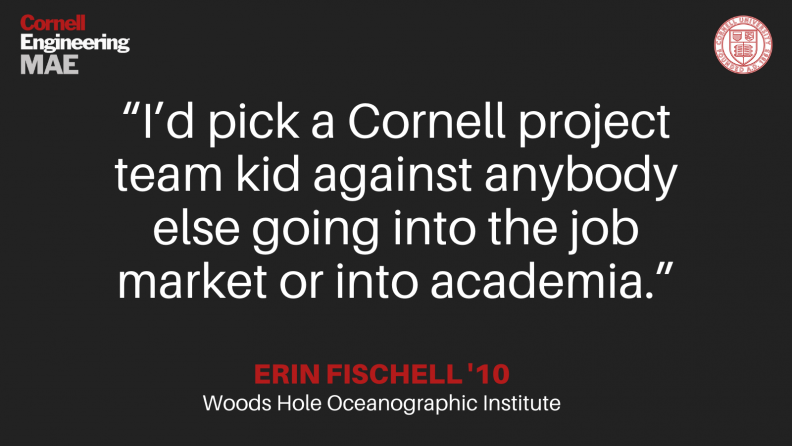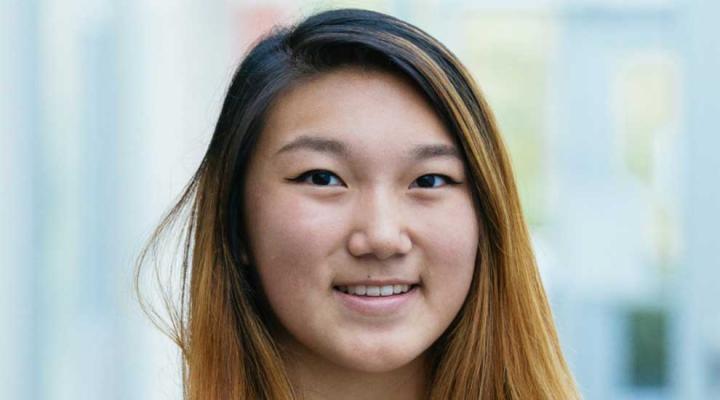By Geoffrey Giller
Erin Fischell knows that there are other schools that also run project teams like those at Cornell. But, she says, “I think Cornell does it better than anybody else.” Often, she explains, students often have to hunt for funding, or work on the pet project of a professor who has funding. And there’s often a faculty member who’s directly involved with the project. At Cornell, however, students run the show themselves.
“I think it’s a brilliant model,” Fischell says. “I’d pick a Cornell project team kid against anybody else going into the job market or into academia.”
At Cornell, Fischell worked on the Cornell University Autonomous Underwater Vehicle, or CUAUV. When she applied to the team, she said on a panel at an entrepreneurship conference at Cornell earlier this year, “I didn’t know at the time that this was going to be the most important part of my undergrad experience.” CUAUV was important because it led her to a career of working on underwater robotics—she’s now a scientist at the Woods Hole Oceanographic Institute working on improving the data collection and control of autonomous underwater vehicles.
And CUAUV was also important for her personal life as well: “The guy next to me in a bunch of these freshman year photos—he’s now my husband,” she added, to laughter.
Fischell especially valued the chance that Cornell provides for students “to be engineers, not just to learn engineering,” she said at the panel. And just like in the real world, she said, whatever they build “has to work every single time under adverse conditions, not just once when the T.A. is looking.”
When it comes to autonomous vehicles in the world’s oceans, a single error can mean the permanent loss of an incredibly expensive instrument. And Fischell understands that failure is never fun. During her time on the CUAUV team, she remembers, “each of those failures seemed so shattering at the time.” But looking back from her current position, she’s grateful: “What a great gift, that space to fail is, where your job’s not on the line! You have time with which to learn those hard lessons.”
Like DeRooy, Fischell thinks that working on a project team is a great way to get hired, in addition to making graduates better at their jobs once they have them. When she or other CUAUV alumni interview people now, she said, it’s immediately clear whether the person they’re interviewing was on a project team. Not only can they relate anecdotes of solving specific problems, Fischell said, but people who have worked on a project team “know how to design things that can actually be built.” They also don’t require a lot of oversight or handholding: “Autonomy is one of the things we learn,” she added.






